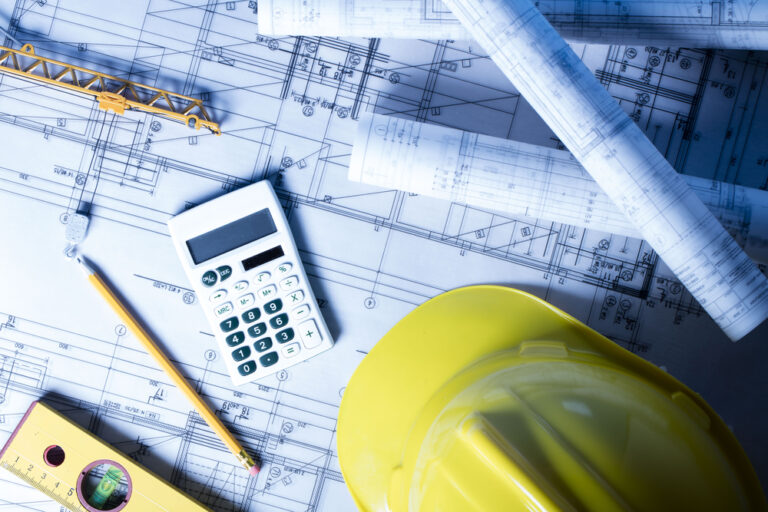If you’re looking for a house to buy, it’s likely you’ll come across a ‘doer-upper’ on your journey.
For some people, the sight of tens of thousands of pounds worth of work to bring a property
up to scratch can make them run a mile.
For others, the opportunity to create something bespoke (and potentially increase the property’s value) is just too good to turn down.
But whatever you’re thinking, buying a house that needs renovation is a lot of work and can carry a degree of risk.
So, if you’re thinking of buying a house that needs updating, take a look at our guide below…
How much does it cost to renovate a house?
The average cost of renovating a three-bedroom house in the UK is £38,000 to £74,000, according to Checkatrade.com.
But the exact cost for your own project will, of course, depend on the work you’re planning to do and who will be doing it.
If you are completely gutting a property and starting again, some of the costs you are likely to incur will include:
- Design and specification from an architect
- Planning applications and building control
- Contractors and build costs
- Snags and unforeseen issues
The biggest cost, and again this will depend on the amount of work you are having done, is likely to be structural and building work, which can run into tens of thousands of pounds.
As a rule, you should expect the unexpected when renovating a house.
Things can, and do, go wrong and costs can, and do, go up. But if you’ve done your due diligence on your property and completed thorough planning, there’s no reason why you can’t bring the project in on budget.
Of course, how much your renovation project costs will depend on the type of property you are doing up and the amount and complexity of the work you are undertaking.
Much, also, will depend on whether you decide to bring in quality tradespeople or do some of the work yourself.
Renovating a house on a budget
A huge portion of your costs when renovating a house is likely to be on labour.
So, the best place to start when renovating on a tight budget is by doing some of the work yourself.
That could include:
- Painting and decorating
- Tiling
- Laying laminate flooring
Some jobs, like plumbing, gas, and electrics, should be carried out by professionals, however, as doing these tasks yourself could end up costing you more if you have to bring in a tradesperson to correct mistakes.
Another area where you can save money is in design.
Architects can be expensive and while certain renovation projects will need one, you may be able to cut some costs by having a builder or draughtsperson draw up plans for your property.
Is it cheaper to buy a new build or renovate a house?
The decision on whether to buy a renovation property or purchase a ready-made home you can move straight into will often come down to costs.
While a property in need of major work will be cheaper to buy than a similar home that’s already been done up, renovation costs can soon mount up.
When deciding whether to buy a renovated property or one to renovate yourself, you should consider:
- Your overall budget for the purchase and potential renovation
- Your long-term plan – will you stay in the property for a long time or are you likely to sell?
- The location of the property and the ceiling price of the road
- Things you’re happy to compromise on and things you’re not
The pros and cons of renovating vs buying a new build
|
Renovation pros |
Renovation cons |
|
Lower purchase price |
Costs can increase quickly |
|
Potential profit after work is complete |
Finding unforeseen issues |
|
Put your stamp on a home |
Renovations take time |
|
Buying a new build pros |
Buying a new build cons |
|
No buying chain |
You may pay a premium |
|
Choice of fixtures and fittings |
Snagging issues |
|
A renovated home without the cost of renovations |
Potentially less outdoor space and smaller rooms |
House renovation costs by room
1. Bathroom renovation costs
The cost of a new bathroom is likely to run into thousands of pounds – but the exact cost will depend on the size of your room, the amount of work required and the quality of the new bathroom you put in.
When assessing how much your bathroom renovation will cost, consider:
- Removal of the old bathroom
- Whether you’re installing a bath, shower, or both
- The number of basins you need
- Any plumbing that needs to be installed or moved
- Flooring
- Lighting
- Tiling
- Taps
- Woodwork and framing
- Painting and decorating
- Overall labour costs
2. Kitchen renovation costs
The cost of a new kitchen can range from a few thousand pounds to tens of thousands of pounds.
The overall cost will always depend on the quality of the kitchen, fixtures, and fittings you want to install and the size of the room you’re refurbishing.
You’ll also need to consider when working out your budget for a new kitchen:
- Removal of your old kitchen
- Any structural work to the room itself
- Purchase and installation of your new kitchen
- All fixtures and fittings, including taps and sinks
- Tiles and tiling
- Appliances like cooker, hob, washing machine, dishwasher, extractor hood, fridge, and freezer
- All labour costs
3. Garden renovation costs
Making the most of your outside space is hugely important but renovating a garden can cost thousands of pounds – depending on its size and the work involved.
When working out the cost of a garden renovation, you should consider:
- The size of your garden in square metres
- Any groundwork required
- Materials like wood for decking, or slabs for a patio
- Turfing or seeding costs
- Planting
- Special elements like water features, fire pits, lighting, or a pergola
House renovations: Five things to consider
1. Assess the property’s potential before you buy it
It might sound obvious, but it’s easy to get carried away when buying a home, particularly if you have a real vision for how you want it to look.
And that can mean missing key things that could cause you problems and cost you money during your renovation.
Consider what is physically possible with the house design and really think hard about the value any work would add against the costs of undertaking it.
Problems can almost always be overcome, but make sure you find out about any potential structural problems early as this can have a huge impact on your budget further down the line.
2. Think carefully about the design
This is where living in the property as it stands for a short time can pay dividends.
Until you live in a house, do you really understand how it works and how it could work?
Consider the property as it is and how it needs to work for you and look at things like where high levels of natural light enter the home and where pockets of additional space can be used better.
Thinking carefully about these things will help you when coming up with a design.
And this is where hiring an architect can help.
Yes, it’s an expense, but professional home designers often see things us mere mortals don’t.
3. Consider what original features to keep or restore
If you’re lucky enough to be renovating a Victorian or Edwardian property, then there’s a chance there will be original period features you’d like to keep.
Due to the time they have been in place, it’s not always possible to preserve things like sash windows or period fireplaces.
But take a good look at everything you want to keep and assess it.
And most importantly, keep an eye out for hidden treasures – many Victorian fireplaces were covered over by home buyers in the 1950s and 1960s.
4. Use electric and heating installations to your advantage
If your property needs renovation work, then it’s likely that the electrics and heating system will be out of date and need replacing.
This can make a big dent in your budget.
But it also means you can make modern changes to these systems to both suit your lifestyle and potentially make your home more energy efficient.
And there’s a strong chance that an energy efficient, modern heating system will add genuine value to your property, in which case you’ll get your money back and more.
5. Quirks aren’t always a bad thing
During your renovation, you might find a few unexpected quirky issues along the way.
For instance, if you’re doing up a period property, you might discover that a floor is not level.
This could be a big cost to rectify, so why not embrace the slanted floor and leave it in place?
A home is unique to its owner, so if you like it, leave it!
Demolition vs renovation
If you’re buying a run-down property and looking to turn it into your dream home, sometimes that goal can be better achieved by demolishing what’s there and rebuilding it, rather than simply renovating.
Demolition can sometimes be more cost-effective, too.
That’s because:
- Renovation work is subjected to 20% VAT, while you can apply for a VAT refund when building a new home to live in
- Renovation work often throws up nasty surprises than can eat into your budget, whereas a new build is generally easier to budget and plan for
Can renovation costs be included in a mortgage?
Mortgages are based on the purchase price of the property you’re buying.
So, if you’re looking to borrow more than your new property is worth to cover renovation costs, you’ll need to look at alternative funding options.
For example, if your property purchase price is £200,000 and you want to spend £50,000 renovating it, you won’t be able to apply for a mortgage of £250,000.
However, other options for financing a renovation project are available, including:
- A renovation or refurbishment mortgage
- A bridging loan
Always speak to an independent financial advisor and mortgage broker before deciding whether to take on additional property finance.
What renovations add the most value to a home?
As well as creating an amazing home for you to live in, renovation work can also add value to your property.
Renovation work that adds space to a property is largely considered the best work to undertake when looking to add value.
That could include:
- An extension
- A loft or garage conversion
- A conservatory
- A garden office
Other renovation work that can add value includes:
- Energy efficiency improvements like loft or cavity wall insulation
- Garden landscaping
- Upgraded kitchens and bathrooms




